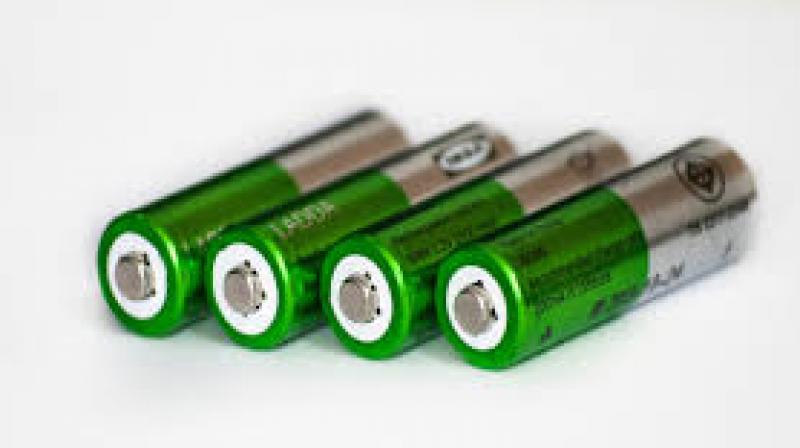Hyderabad: Dumping pencil batteries is toxic

Hyderabad: Pencil batteries used in cars, mobiles, laptops, watches, television remotes, toys, medical devices and inverters often end up in our garbage bins after use.
Researchers say that the unprocessed dumping of zinc, carbon and lithium-based batteries is poisonous to the environment. India consumes 2.7 billion pencil cells every year but unprocessed dumping is turning into a major concern for the environment.
A recent study by Toxics Link, an environmental research and advocacy organization, on batteries titled ‘Dead and buried’ shone a light on this widely used item that has escaped any regulatory monitoring.
Given the exploding population and growing dependency on technology-driven products, every year over 15 billion batteries are produced and sold world-wide.
According to The Freedonia Group, a Cleveland-based industry research firm, the world demand for primary and secondary batteries is forecasted to grow by 7.7 per cent annually, amounting to $120 billion in 2019. Many are non- rechargeable which means they are discarded after a single use.
Experts say that in a country like India, meeting the power demand of a huge population has always been a challenge for the government and that has opened up the opportunity for the battery industry.
Although the most used ones are those we use in our cars, there pencil batteries are also used in various gadgets. The report revealed that the Indian market was still dominated by the non-rechargeable batteries mainly because they were cheaper and preferred over the expensive ones.
The market share of dry cell batteries, zinc-carbon cells account for 97 per cent share. The used batteries which are mostly dumped in landfill sites lead to contamination of soil, surface and groundwater, affecting human health, said the study.
The current Municipal Waste Rules, 2016 does include batteries as part of the domestic hazardous waste, but there are no collection systems or recycling facilities to manage these batteries.

